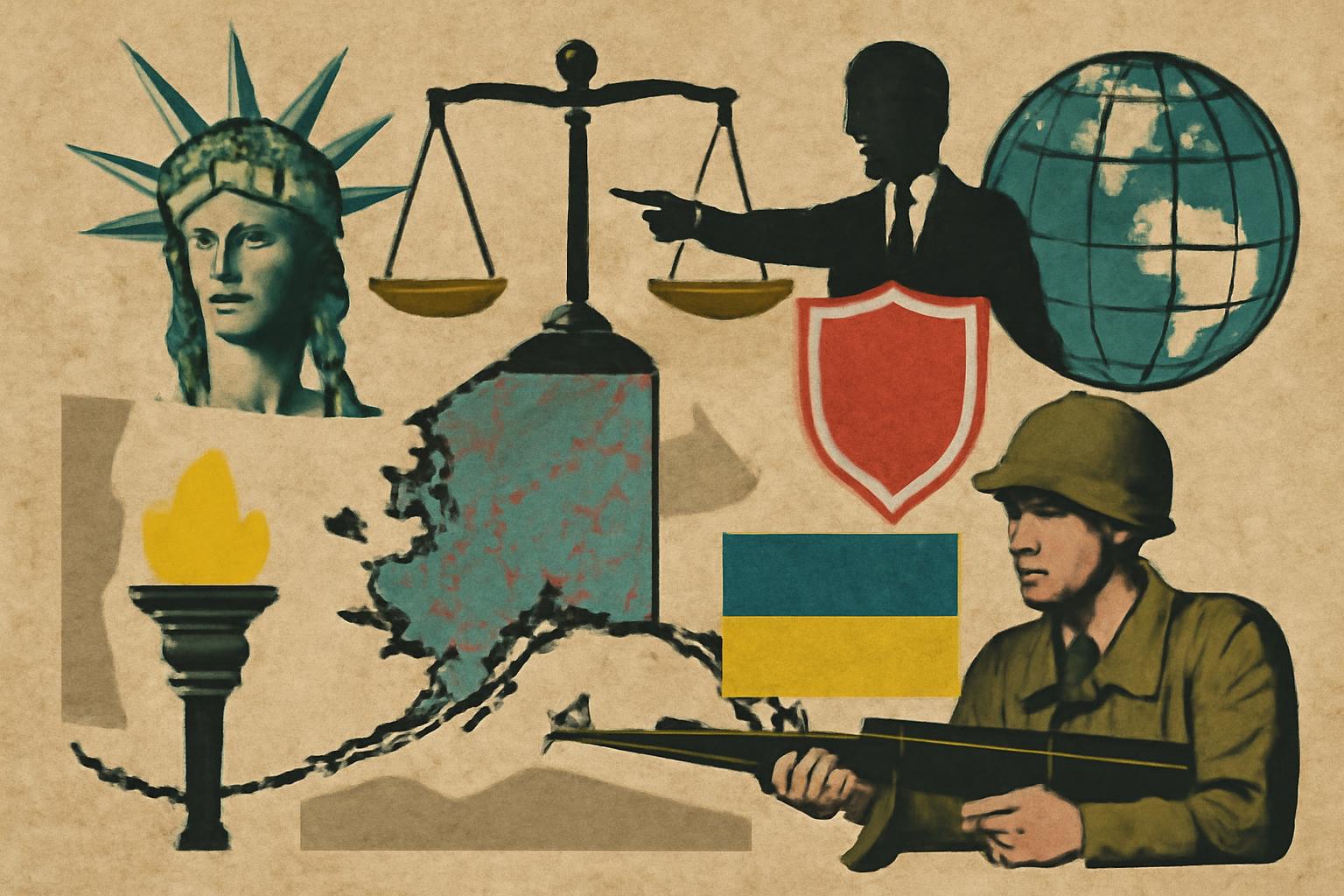The Alaska meeting sets up a high-stakes stage where a presidential bromance-with-a-banner-idea risks eclipsing the sovereignty and rights of the people trapped in the crossfire. Zelensky sits as a spectator while Moscow and Washington maneuver for narrative control; Europe frets that decisions taken in a gilded room will redraw borders without consent from those living on them. Putin faces an ICC warrant yet strides onto a platform to shape what counts as “normal” foreign relations; Trump’s posture is to trade form for optics, potentially pausing or loosening sanctions in exchange for a swift, marketable peace. Ukraine insists on fighting only within existing frontiers and under international law, rejecting recognition of Russian occupations. The humanitarian warning is clear: without stronger Western restraint, economic pressure, and credible security guarantees, civilian harm will mount as displacement grows and regional stability frays.
From a libertarian vantage, the whole frame exposes why state-centric diplomacy is a fragile and dangerous enterprise. Hayek would remind us that knowledge is dispersed and tacit across millions of interactions; top-down bargains crafted in executive suites cannot possibly align the countless local facts on the ground. Inviting a traditional power to redraw the map through bargaining treats peace as a prize to be brokered rather than a spontaneous order arising from consistent respect for rights, contracts, and voluntary exchange. The risk is that the “deal” becomes a vehicle for legitimizing coercive acts abroad while masking the costs borne by nonparticipants—innocent civilians, private charities, and free-market actors who would otherwise coordinate relief, rehabilitation, and reconstruction without political strings attached.
Nozick would press the tight point: rights are fundamental and jurisdictional boundaries begin with individuals, not states. A minimal defense mechanism is legitimate; anything beyond that—foreign entanglements, sanctions as collective coercion, or guarantees that rewrite borders—looks like a violation of the rights of those on both sides who have not consented to a particular ruler’s agenda. If a “peace deal” sacrifices Ukraine’s self-ownership, its sovereignty not as a moral abstraction but as a concrete right of people to govern themselves, then such a deal is ethically illegitimate even if it reduces immediate violence. The ICC warrant against Putin raises questions about coercive legalisms being used as weapons of policy; libertarians should be wary of state-imposed legal regimes that extend coercion across borders without true consent and without protecting individuals’ rights from aggression.
Rand would insist that the core axis must be moral clarity: life, liberty, and the pursuit of rational self-interest. The aggressor bears sole moral responsibility for initiating force; the defender—whether a state or a people acting through voluntary means—has a right to resist. That said, Rand would likely caution against financing defense with moral posturing or yielding to demagogic promises that confuse security with concessions that erode rational self-interest. Ukraine’s insistence on fighting within lawful frontiers and rejecting occupation recognition aligns with a rational defense of rights; any Western strategy that substitutes political theater for genuine protection of individual rights risks creating moral hazard and legitimizing aggression as a bargaining chip.
The practical libertarian stance here is crisp: shrink the coercive footprint of the state in foreign affairs, and rely on the spontaneous order of liberty to address humanitarian needs and security threats. That means: minimize unconditional military aid, avoid broad sanctions as tools of coercion that injure civilians, and resist grand bargains that empower expansionist rulers by trading away the rights of others. The best long-run outcome would come from a noninterventionist posture that respects sovereignty as a protection of individual rights, not a tool for great-power bargaining. In the short term, support Ukraine’s right to self-defense and to pursue a future free from occupation, while channeling aid and relief through private, voluntary channels rather than the machinery of centralized state policy. Trust in market mechanisms to coordinate reconstruction and humanitarian relief, not in top-down treaties that treat borders as adjustable trophies for tyrants. The ultimate answer is a politics of liberty: limits on state power, respect for rights, and a rejection of imperial bargains that sacrifice the integrity of individuals for the spectacle of grand diplomacy.
